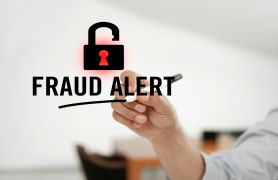Practice Areas
Attorneys
EIDL Fraud Alert
 Since the passing of the CARES Act, many businesses have taken advantage of the Act’s various loan programs, in particular the Paycheck Protection Program (PPP) and the Economic Injury Disaster Loans (EIDL). However, as often happens, many people have found ways to take advantage of these programs.
Since the passing of the CARES Act, many businesses have taken advantage of the Act’s various loan programs, in particular the Paycheck Protection Program (PPP) and the Economic Injury Disaster Loans (EIDL). However, as often happens, many people have found ways to take advantage of these programs.
Recently, businesses around the country discovered that the Small Business Administration (SBA) had filed UCC filings for EIDLs that the businesses did not apply for or receive. It was found that third parties had applied for the EIDLs under their businesses’ names and using the businesses’ Employer Identification Numbers (EIN). It also appears businesses who received PPP loans also were more likely to be victims of EIDL fraud.
Best Practices
We recommend businesses regularly perform searches of UCC liens filed against them to see if any liens have been filed on the businesses’ assets. If a fraudulent EIDL UCC filing has been placed, we recommend:
- First check an SBA public database to see if the SBA has reported the business had been approved for an EIDL.
- Next, contact the SBA’s EIDL office, and file an SBA Declaration of Identity Theft The SBA then will open a fraud investigation that could take 60 days or longer to complete.
It should be noted, the SBA will not file a UCC Termination Statement needed to remove the fraudulently filed UCC filing until the SBA completes its investigation.
Additionally, we advise businesses who are victims of this type of fraud to file a police report with their local police departments, detailing the identity theft. We also suggest victims file an Identity Theft Affidavit with the IRS.
Should your business need any assistance reviewing UCC filings or otherwise addressing any fraudulent EIDL issues, please feel free to contact us.
____________
Disclaimers:
At the date of publication the above information was correct. It is quite possible the information above has changed as COVID-19 is a rapidly evolving situation.
The article in this publication has been prepared by Eastman & Smith Ltd. for informational purposes only and should not be considered legal advice. This information is not intended to create, and receipt of it does not constitute, an attorney/client relationship.
